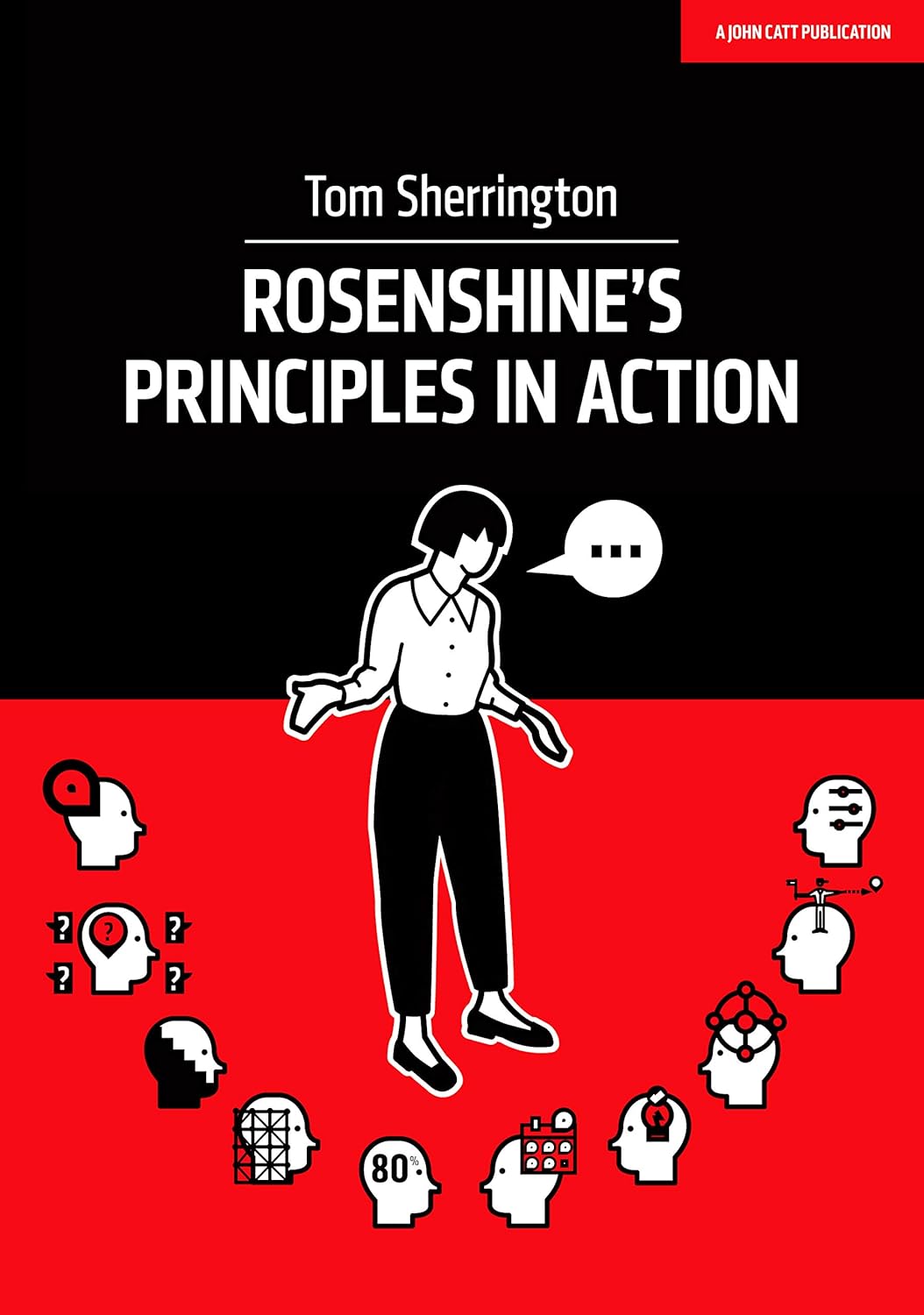About this deal
Questioning focuses on a crucial area of teaching and learning which is otherwise largely absent from Rosenshine’s principles: student engagement. As Tom Sherrington writes in his book Rosenshine’s Principles in Action, [2] Providing students with models and worked examples can help them learn to solve problems faster’ (p. 15).
Sherrington offers six questioning strategies based on Rosenshine’s principles. Sherrington outlines the objective of each and how it should be undertaken in practice. He recommends that teachers work on one or two of these strategies with students, accompanied by students engaging in ‘deliberate practice’ until these strategies ‘form a set of … default modes for engaging in responsive teaching’ (Sherrington, p. 28). ‘Deliberate practice’ is a systematic method of effortful, highly focused, goal-oriented practice which aims at improving performance. [3] It is sometimes described as ‘intentional engagement in skill-based learning’. [4] (On deliberate practice, see our recent blog post.) Rosenshine’s principles are the culmination of his research into the effectiveness of methods of instruction. Rosenshine worked on this article for many years. He explains several of the ideas behind the principles in a talk given in 2002 on ‘Making Instruction Explicit’ (available on YouTube). In that talk, he says he’s been ‘revising this paper for ten years’.Provide models: Providing students with models and worked examples can help them learn to solve problems faster.’ (Rosenshine, p. 15.) Worked examples Re: ‘explicit to implicit’ and the connection between the two (if any)… while this may be equally refutable, I feel more aligned with Ullman’s research on this one – these are distinct memory systems that play different roles (I’m referring to declarative v procedural knowledge there). Yes, my views do tend to flit around, but the idea that declarative knowledge leads to procedural knowledge has always seemed a bit convenient/simplistic in all honesty. It has been a long while since I formally studied this area though so my current views are a tad bitty. The cognitive load involved in a task is the cognitive effort (or amount of information processing) required by a person to perform this task. If the cognitive load needed for learning becomes excessive, little or no learning can occur’. [1] Sherrington writes that this strategy is a ‘powerful mode of questioning and a form of guided practice’. This would need to be carefully incorporated into lesson planning for it to be successfully adopted as the default method of questioning, given the time it will take to ask each student several questions. Depending on class sizes, if it were the default approach, a set of students could be chosen each lesson to be asked questions, so there’s roughly an even balance across the students over a term or course.
First published in 2010 by the International Academy of Education; republished in 2012 as‘Principles of Instruction: Research-based Strategies That All Teachers Should Know’, in American Educator. References are to the latter. The POI pamphlet mediates between research and practice (see the pamphlet here). The author clearly states each principle (giving us the what), then summarises findings from research and observations (providing the why), and offers suggested reading related to each principle. Our blog last week offered a brief introduction to Barak Rosenshine’s influential ‘Principles of Instruction’ and Tom Sherrington’s division of Rosenshine’s principles into four ‘strands’, in his book, Rosenshine’s Principles in Action. Sherrington uses the strands to explain Rosenshine’s principles, by connecting the principles with those to which they bear the closest relations, illustrating how the principles complement and support one another, and offering practical advice for their implementation, in addition to that offered by Rosenshine. This week’s blog post explores Sherrington’s strands and Rosenshine’s principles in more detail.Second, explore the implications of each principle at a subject-specific level. The principles and the strands into which Sherrington divides them need to be contextualised for successful implementation and applicability. They ‘have meaning’, Sherrington writes, ‘only in the context of curriculum content’.
 Great Deal
Great Deal 